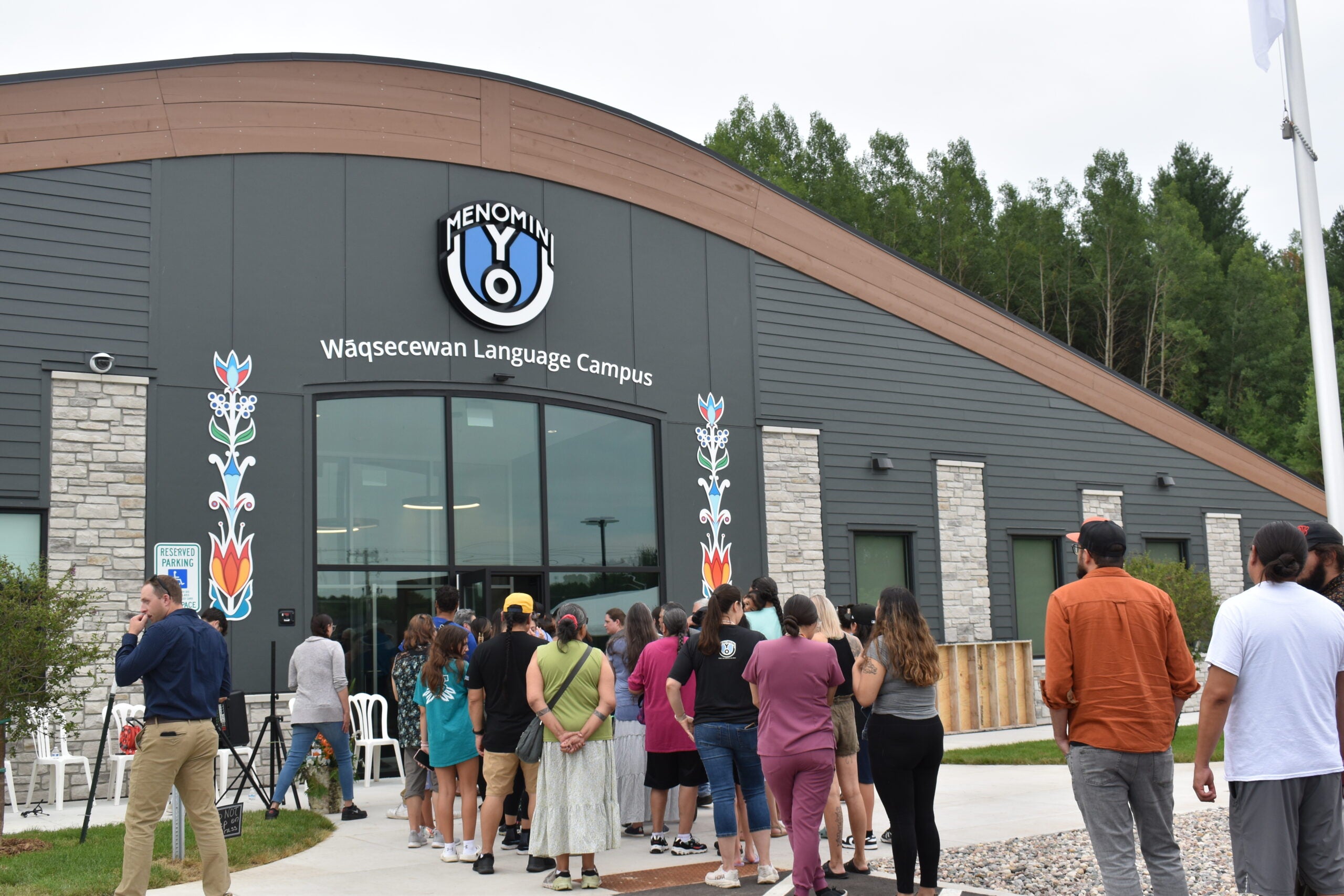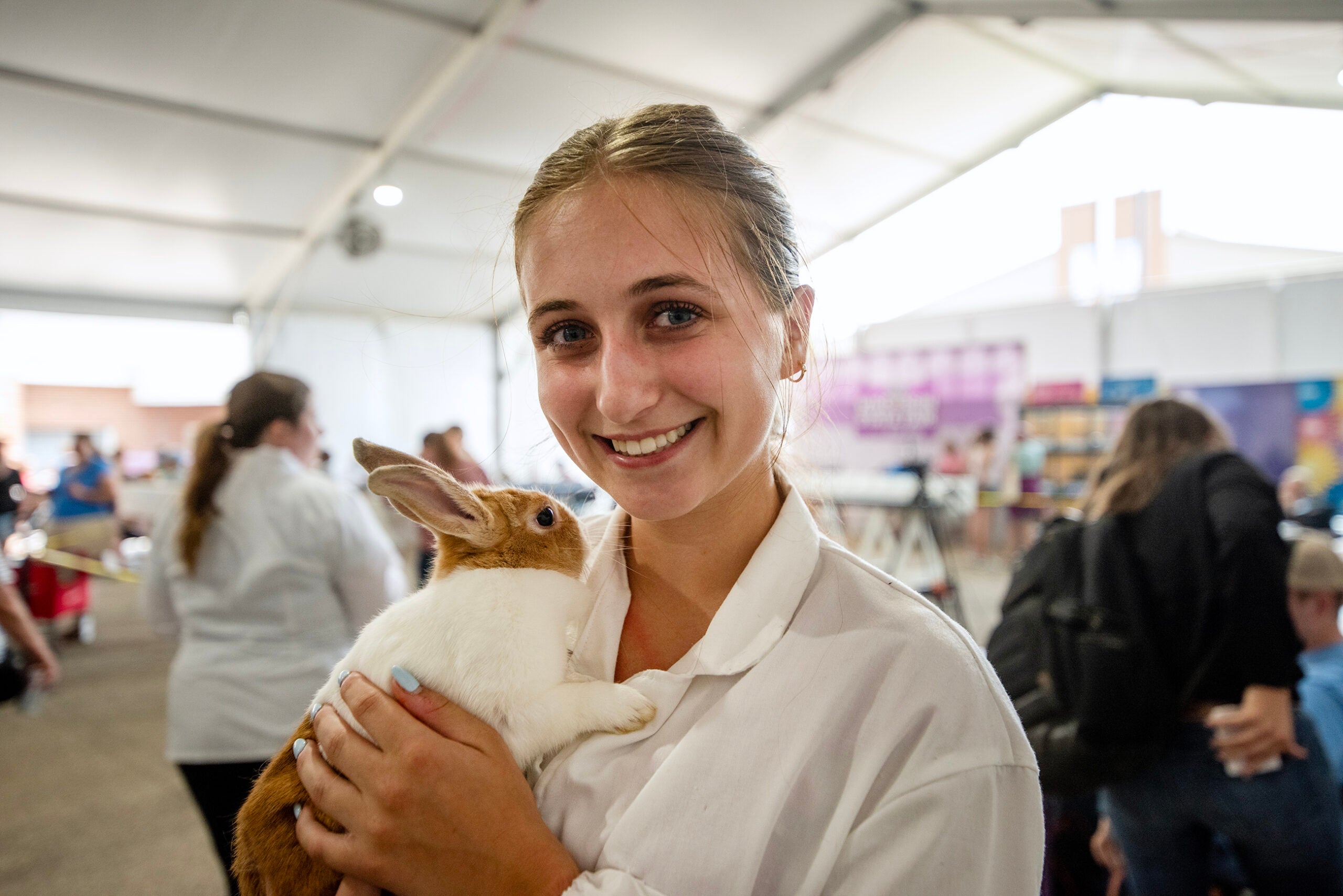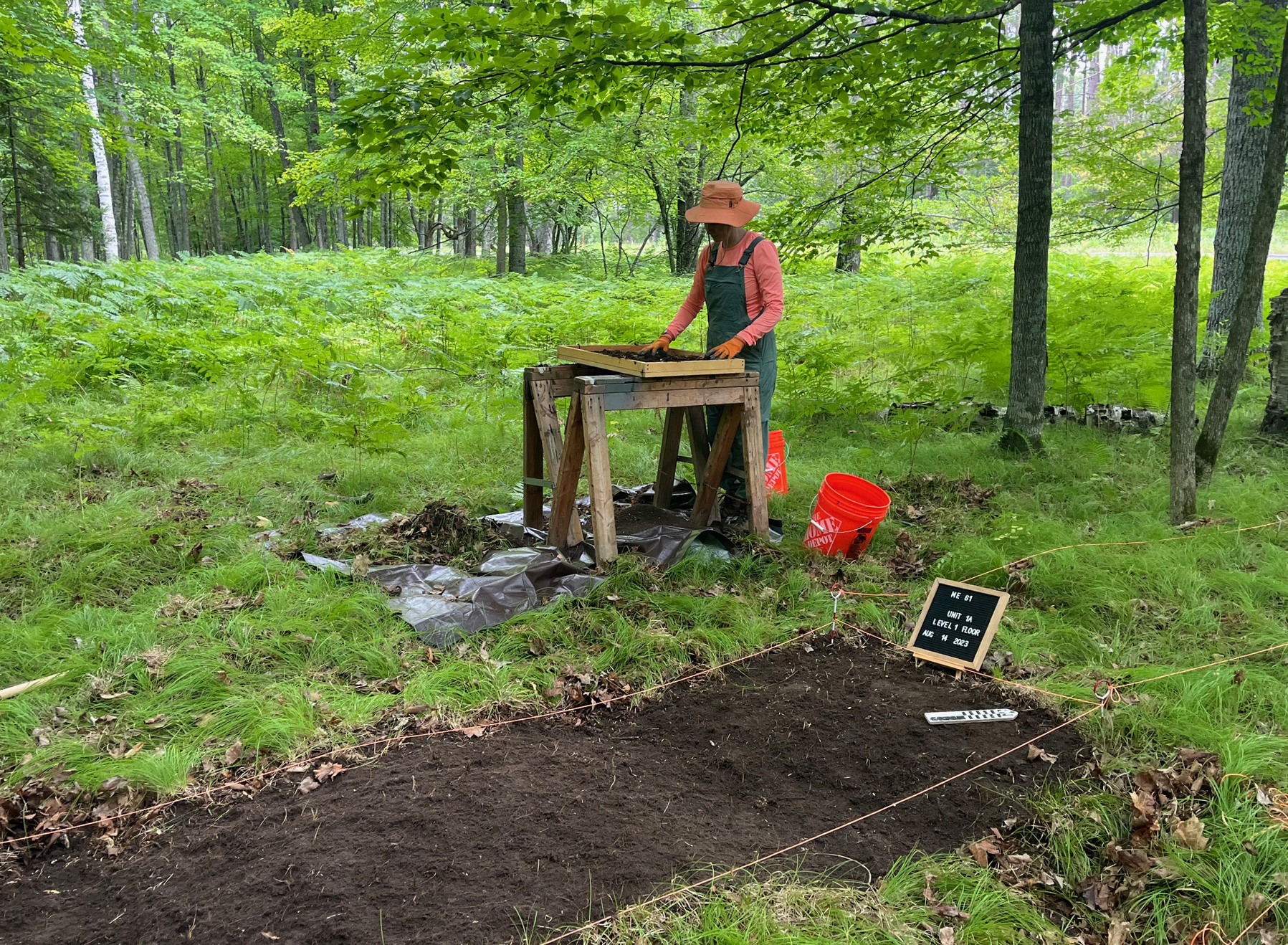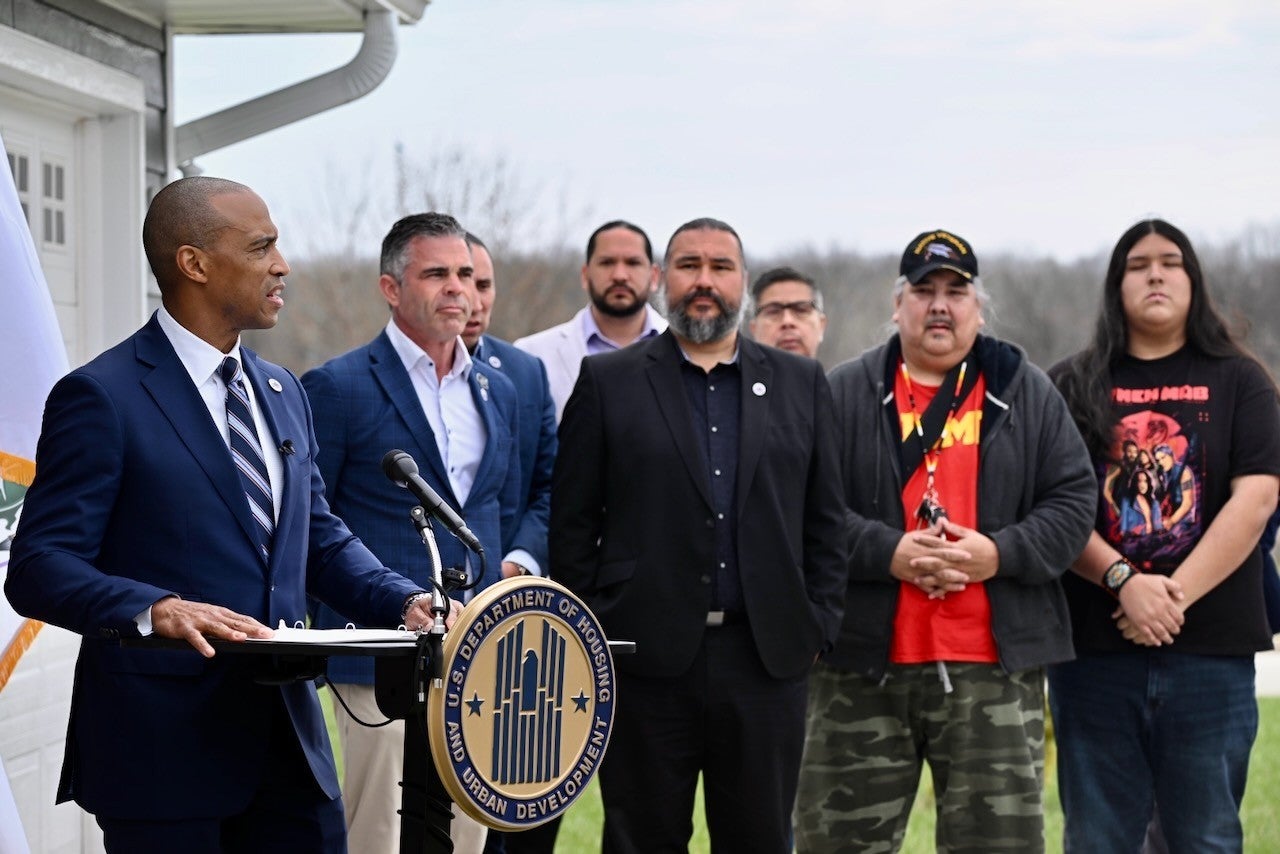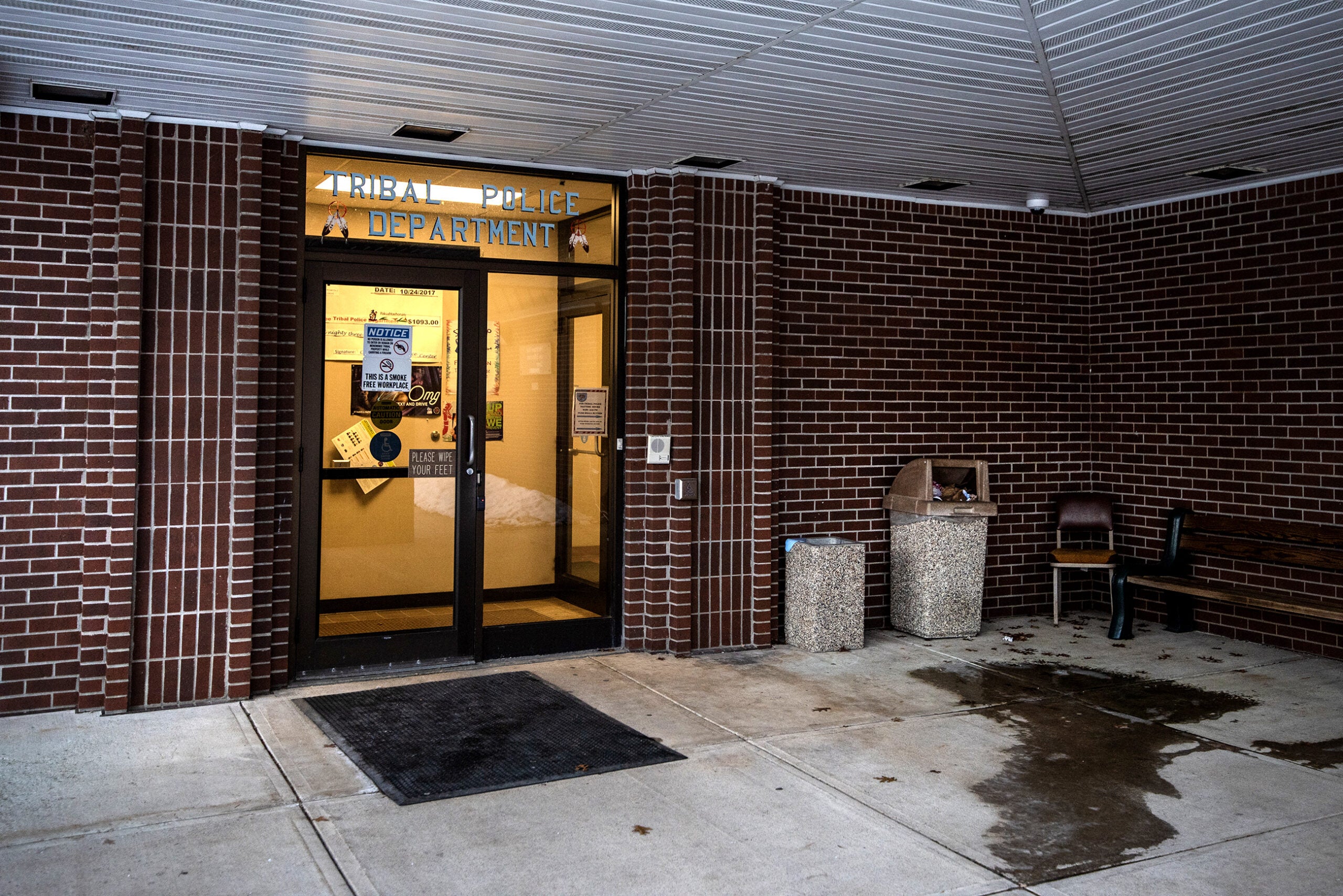A center dedicated to revitalizing the Menominee Indian Tribe of Wisconsin’s native language opened Thursday, marking a milestone in a yearslong effort to keep the language alive.
The Menominee, like many other tribes, faced institutional efforts to stamp out their language and culture in the late 1800s and early 1900s.
“Even with all those efforts that were made and done to our people to destroy us, we are still here, and so is our language,” said retired teacher Gina Washinawatok during Thursday’s grand opening ceremony. “We are a resilient people, never forget that.”
News with a little more humanity
WPR’s “Wisconsin Today” newsletter keeps you connected to the state you love without feeling overwhelmed. No paywall. No agenda. No corporate filter.
The Wāqsecewan Language Campus is located on the Menoninee Reservation. It provides expanded office space, multiple classrooms, meeting and event rooms, a kitchen and outdoor cultural activity space. The tribe broke ground on the 10,000-square-foot facility roughly eight months ago.
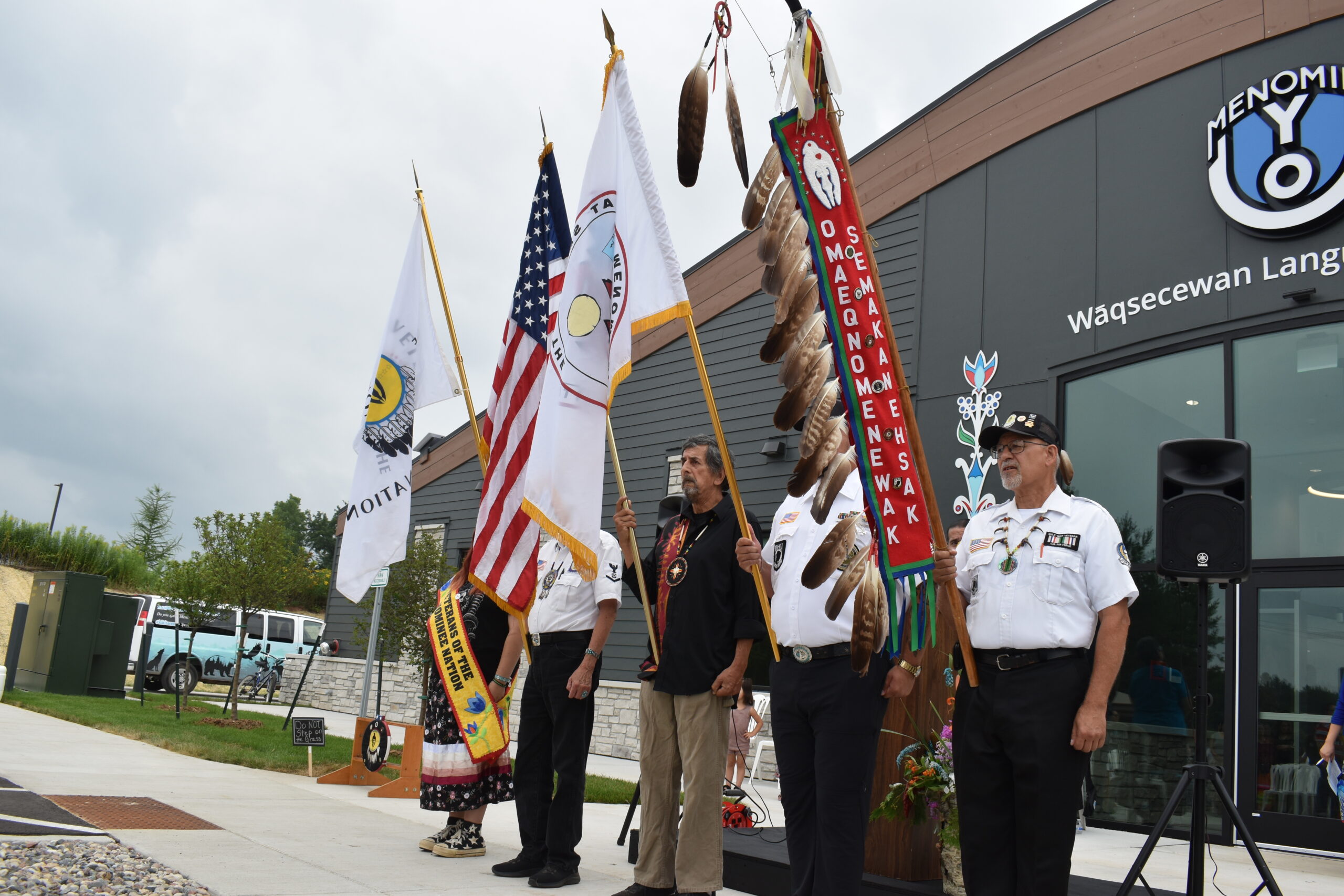
The nonprofit Menomini yoU led the effort to develop the center, which will house its offices. Burton Warrington, executive director and co-founder of Menomini yoU, said it will host community classes, both in-person and online, and provide a place for gatherings where people can use the native language freely in everyday conversation.
“To re-normalize our language, nobody has to change their life,” Warrington said. “We do all the things we do in our life anyway. Everybody uses language to communicate.”
Warrington said the nonprofit has 10 students starting a yearlong “language acquisition program” next week. The students will also be part-time employees of the organization.
He also said revitalizing the tribe’s language helps preserve the Menominee’s history.
“We’ve been here well over 13,000 years, and the one consistent from 13,000 years ago is our language,” Warrington said. “Without having documented history, we have an oral history, and the DNA of our language encompasses our 13,000-year story of who the Menominee people are.”
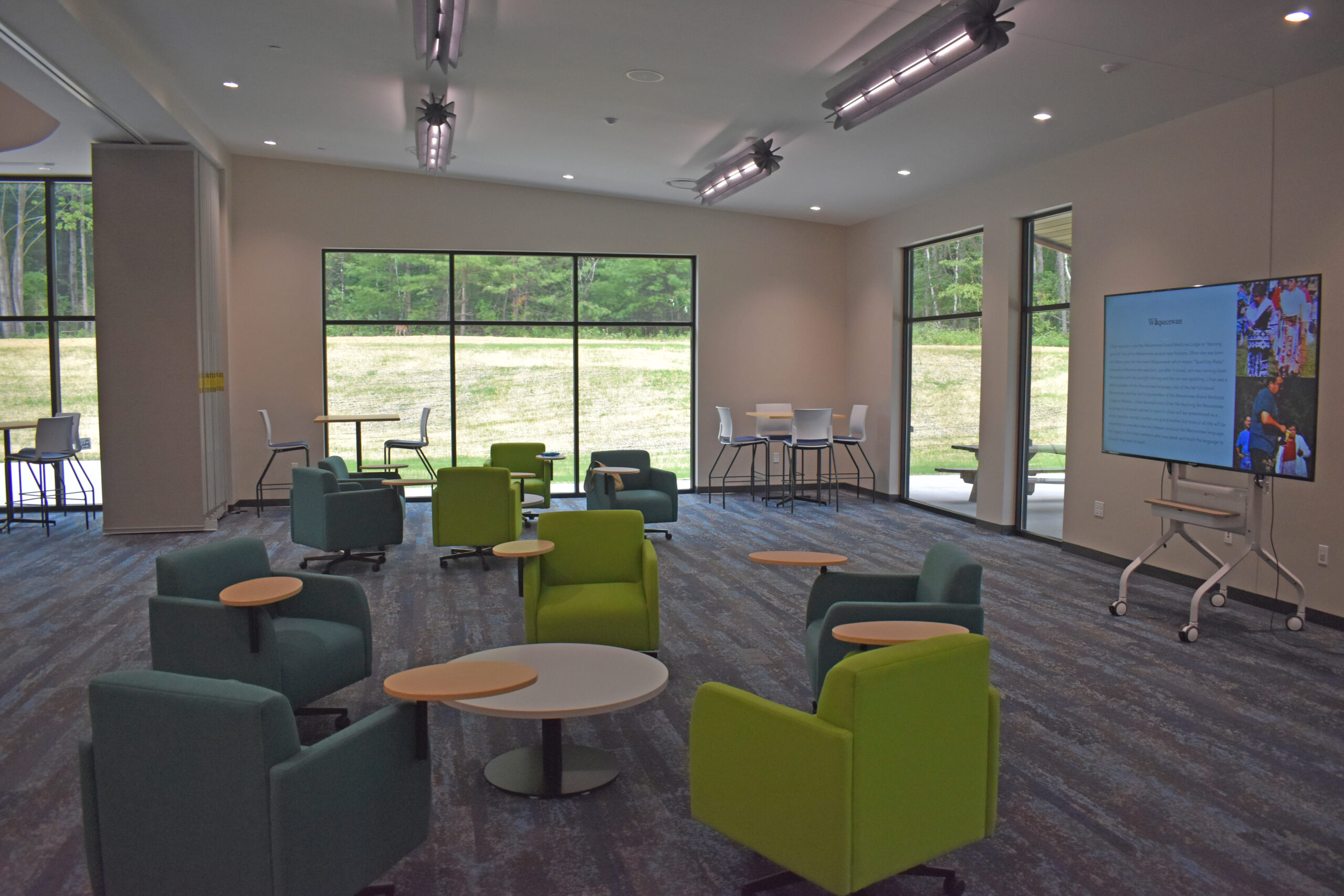
Menominee Tribal Chairwoman Gena Kakkak said the new facility will provide residents with additional resources and opportunities to hear, speak, learn and experience the language.
“Our language is the essence of who we are — it carries our stories, values, histories and our way of life,” she said. “This beautiful new facility is more than just a place to learn. It is a center for our community for engagement and empowerment, allowing us to connect to our culture, our language.”
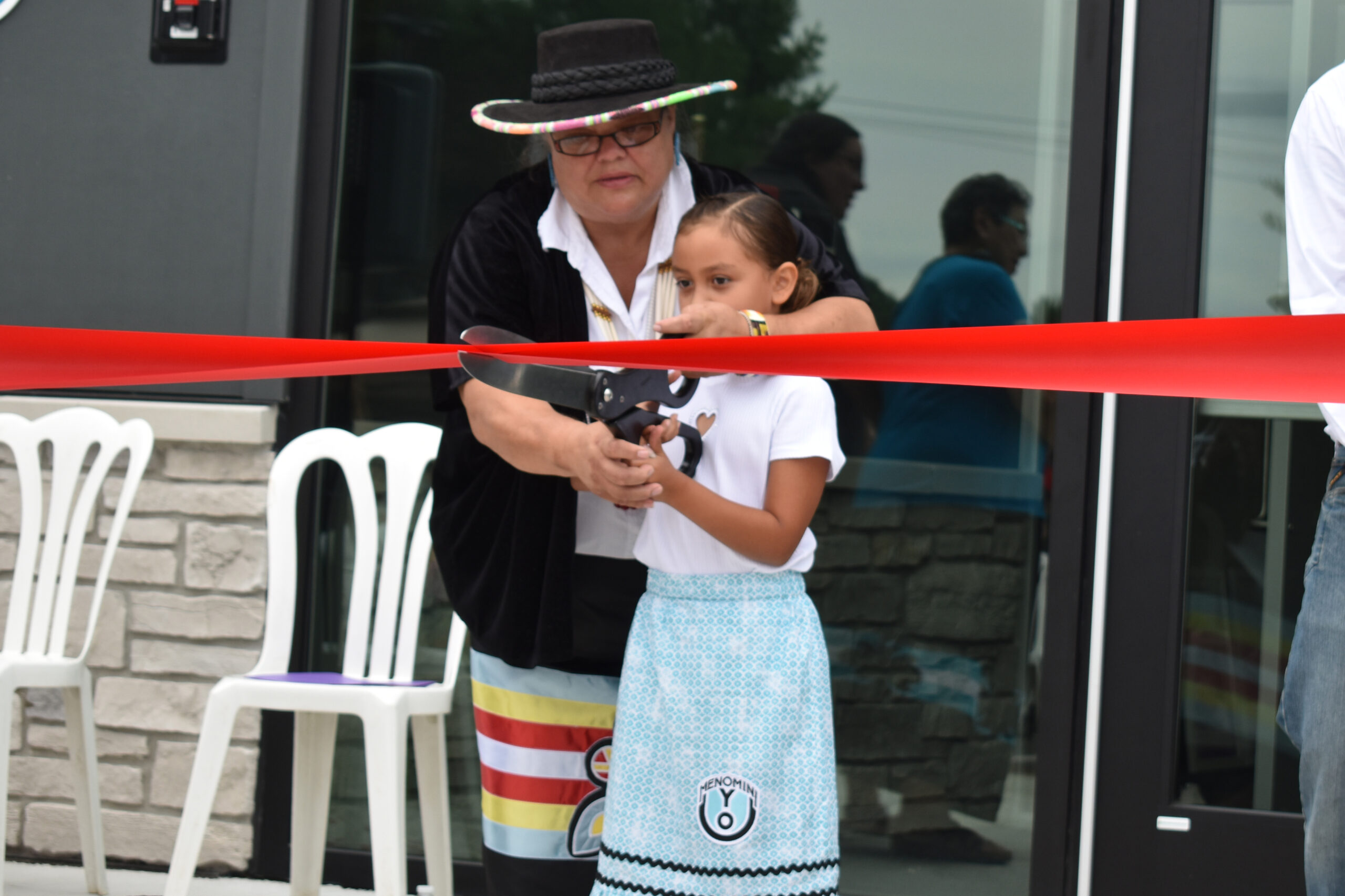
Joey Awonohopay, director of the Menominee Language and Culture Commission, called the grand opening ceremony “very emotional.” He credited the tribe’s elders for helping their language survive efforts to wipe it away.
“We had the honor of sitting with the last group of elders that helped us to get to where we are, to mentor us, to pick us up when we stumbled and to give us that courage and that strength to fight for everything we have today,” he said.
The center is named after Lillian “Wāqsecewan” Nelson. The name translates to “Sparkling Water.”
Gary Besaw, director of the Menominee Tribal Department of Agriculture and Food Systems, said Nelson was an influential teacher in the community who worked tirelessly to advocate for the Menominee language.
“She committed her time to us,” Besaw said. “Whenever anybody asked, she would step forward, and she would work. We had many that did that, but she was the one many of you will remember from the school system, all the way through working at the college and working with the language.”
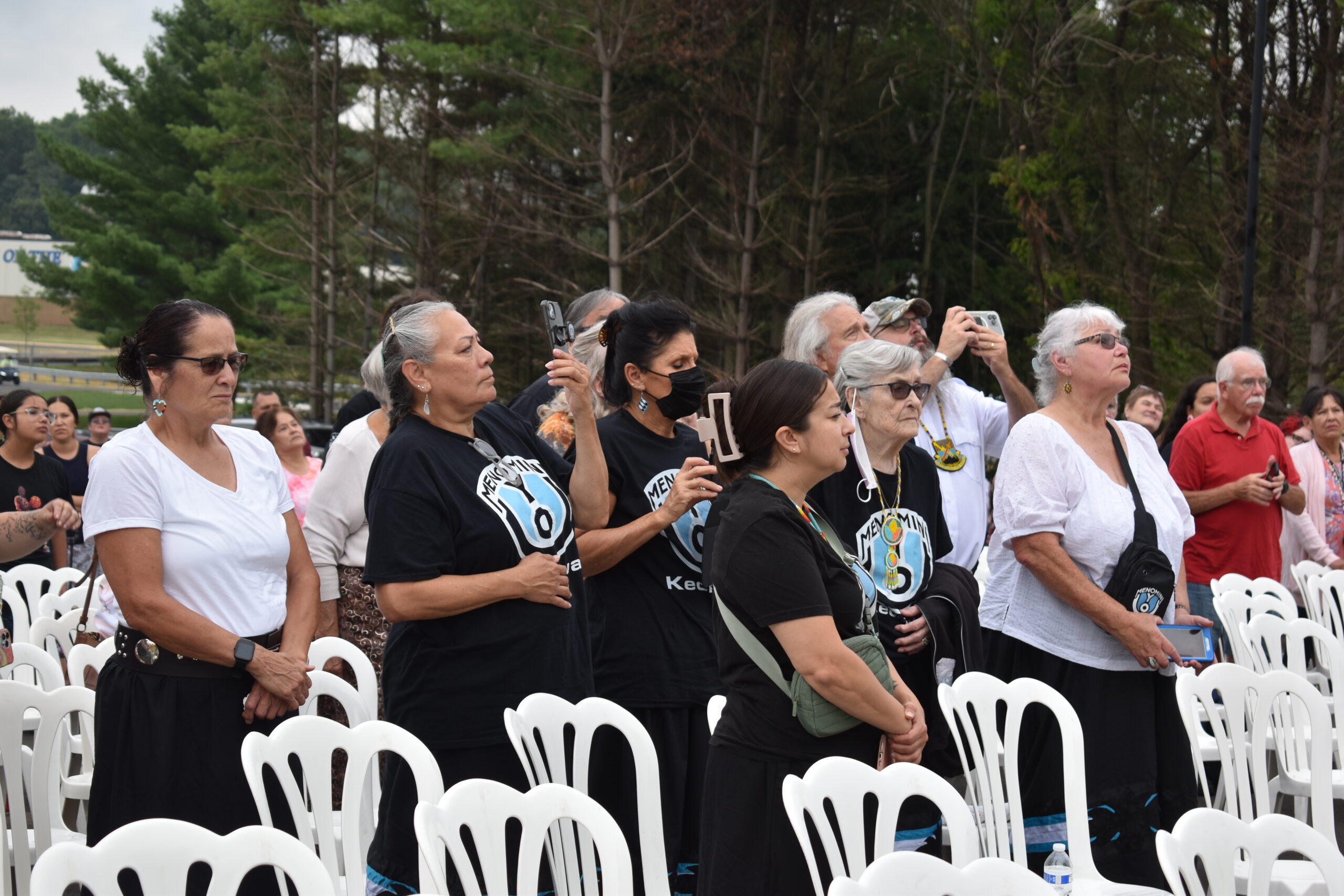
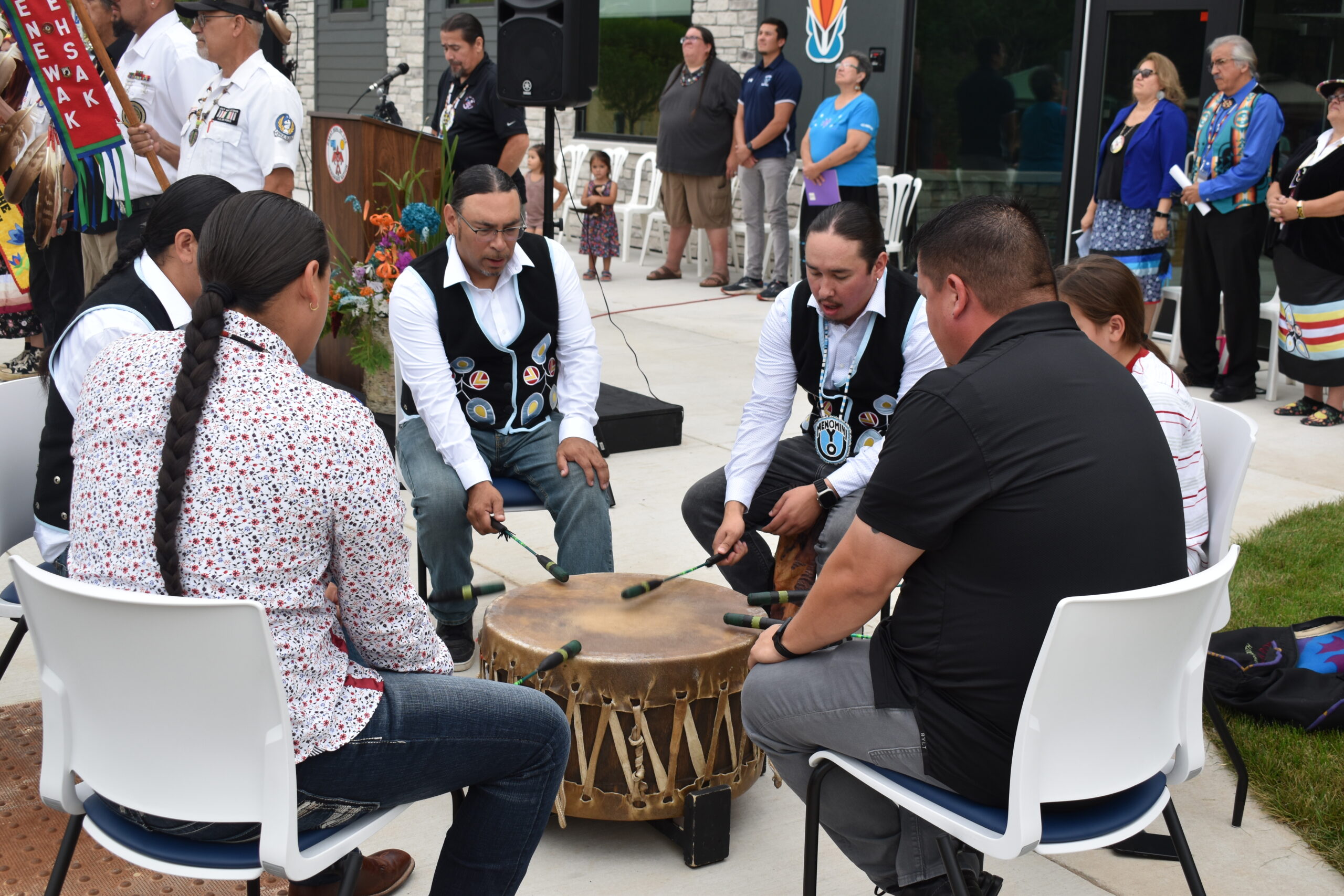
Wisconsin Public Radio, © Copyright 2025, Board of Regents of the University of Wisconsin System and Wisconsin Educational Communications Board.

